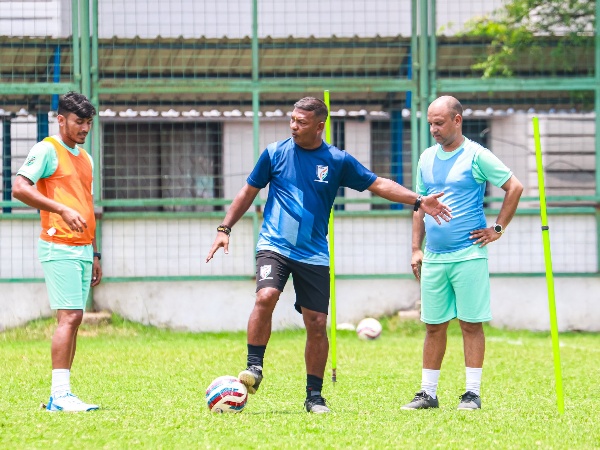views : 810
4 Min Read
Sports psychologist Urvi echoes Gopichand call to support grassroots coaches
The Ministry of Youth Affairs and Sports’ recent decision to enhance the salaries of the Chief Coach and other coaches at the national level must be welcomed. Yet, without corresponding incentives at the grassroots and developmental levels, it is more than likely that many coaches with potential will feel lost in the top-heavy high performance pathway.
Badminton guru Pullela Gopichand has been in the forefront of a campaign to ensure that coaches at the pre-elite levels are supported by Governments with salary packages that are commensurate with their contribution to the assembly line of high performance athletes across sports disciplines in India.
Gopichand’s views echo with sprinter turned sports psychologist, Urvi Khasnis. From her base in thousands of miles away, she remains passionate about Indian sport. She is among the earliest doctoral researchers focusing on coach development. She has proposed a model, including structuring education pathways and introducing initiatives to encourage home-grown coaches.
Her PhD thesis titled ‘Solving the Rubik’s Cube of Indian Sport: Exploring Impactful Factors and Alternative Ways to Facilitate Success’ is one of the few studies that has sought to plug gaps in quality research on Indian sport. Now a performance psychologist with Grey Matters in the United Kingdom, she tracks developments back home with great interest.
Talking about coach education, she said many coaches want to acquire the next level of coach education, but because that is quite expensive and there is probably not enough incentive in salaries that would get, they did not feel justified to spend that much. “It would have potentially some impact on their motivation if they do not secure a better income,” Urvi Khasnis said.
Clearly, her experience as a National-level athlete has had an impact on her choice of career pathway. “There were two things that I felt if I had a bit more support I could have maybe progressed a bit more than I did. One was psychology because there was a bit of performance pressure which I didn't necessarily deal best with.
“The other area which I felt I could have had a bit more support or inputs in terms of coaching was physiotherapy,” she said, quickly pointing out that she was quite lucky with some of the physiotherapists she worked with and that her coach was actually really good, attributing the level she reached to him and how he trained her.
“There were not my individual experiences alone. Talking to athletes from other States at the Nationals made me realise that we had similar experiences. It's not just a Pune thing or a Mumbai thing. It's more broad-based than that. It contributed to me wanting to work in the sporting field,” she said.
She did a series of studies on her way to the PhD. Starting by looking at policies, their implementation and their impact, she went out and asked people in the field to understand what was happening from those actively living it, day in day out. Her first empirical study was with international athletes, their coaches, administrators in governing bodies and in Government.
That study made her focus on coach education and development as all groups of participants highlighted that. “Of course, India still needs to focus a little bit on infrastructure, making it more accessible and maintaining it. But across the groups the consensus was that India needs to actually start focusing more on its people rather than building infrastructure,” she said.
“So that's where the reprioritising focus from hardware to liveware came in. and the reason coach development was specifically was spoken about was because coaches have a huge impact on athlete development, whether that's developing athletes technically, tactically or whether that's integrating all the allied support systems in the athletes’ life,” Urvi Khasnis said.
Then she surveyed 113 athletes from pre-elite levels to get an idea of what is happening at those levels. Some reported that coaches needed additional training while others were happy with their coaches’ development. Of course, the predominant guru-shishya culture could have contributed to athletes not wanting to say much about their coaches, she said.
Urvi Khasnis has not stopped with the PhD. She is currently conducting another study where the focus is on coaches who have emerged from different coach education systems in India. “We're trying to figure out the nature of coach education and what it does for grassroots coaches since they play a huge role in in athlete development and performance,” she said.
The Indian sports ecosystem must find a way of incentivising coaching for Indians to motivate coaches to get involved and progress because then they can see that a really nice trajectory of opportunity to grow. But first it must get its act together in terms of coach education and incentivisation if it is to grow exponentially as a sporting nation.
